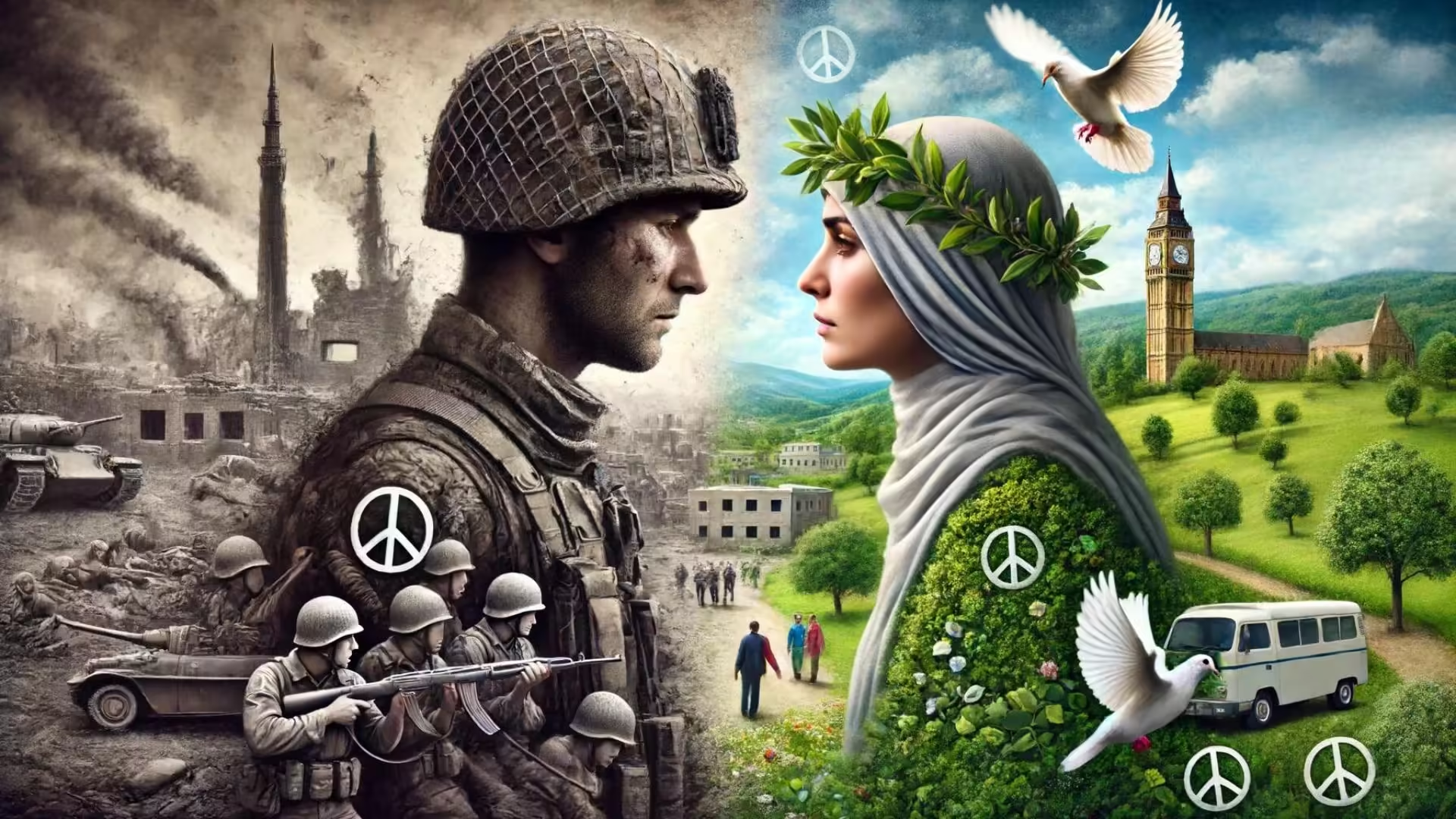Have you ever stopped to wonder why we keep fighting? I mean, really stopped to think about it. War, conflict, hostility—they’ve become so ingrained in our global culture that we often accept them as inevitable. But are they? How long can we continue down this path before nature tells us enough is enough or some happy trigger moron end life as we know it with the press of one button, or not to sound like those Hollywood movies, one foolish decision? What if the solution has been right in front of us all along?
Let’s face it: war is futile. The history books are filled with tales of battles won and lost, lands conquered, and lives destroyed. We have achieved great victories; we have won great battles — absolutely. Yet, here we are, still fighting, still spilling blood over borders, ideologies, and resources. The question we should be asking isn’t “who will win the next war?” but rather, “why are we still fighting at all?”
Picture this and I bet you can: a world where resources are shared, where borders are merely lines on a map, and where our differences are celebrated rather than fought over. It sounds idyllic, almost naïve, right? That’s exactly what some people want you to think. They dismiss peace advocates as dreamers, out of touch with reality. But let’s turn that notion on its head for a moment. Who’s really seeing the big picture?
Consider the immense resources poured into military budgets worldwide. Trillions of dollars that could be spent on education, healthcare, and combating climate change are instead funneled into weapons of war. Imagine if that money was redirected towards building a better future rather than tearing each other apart. It’s not just a pipe dream; it’s a viable solution that we’re too busy fighting to see.
People who talk about peace are often labeled as idealistic, but isn’t it more idealistic to believe that perpetual conflict is sustainable? The truth is, those who push for peace are not blind to the world’s harsh realities; they’re painfully aware of them. They understand that the endless cycle of violence only leads to more suffering, not solutions.
We must ask ourselves: who benefits from continued conflict? It’s certainly not the common people, who bear the brunt of war’s devastating effects. It’s those who profit from the war machine, those who have a vested interest in keeping the fires of conflict burning. By dismissing peace advocates as naïve, they divert attention from their own motives.
So, who’s really being naive here? The ones who believe in the power of peace or the ones who think we can fight our way to a better world?
The path to peace isn’t easy, and it’s fraught with challenges. It requires diplomacy, empathy, and a willingness to see the humanity in our so-called enemies. But the rewards far outweigh the effort. A peaceful world is a prosperous world, one where creativity, innovation, and collaboration can flourish.
Think about the potential for global cooperation. With peace, we can tackle the biggest issues facing our planet—climate change, poverty, disease. Instead of pouring resources into destruction, we could invest in our shared future. It’s a vision that requires courage and a shift in perspective, but it’s not impossible.
We have the chance to be the generation that chooses peace over war, unity over division. It starts with each of us recognizing that the true strength lies not in our ability to fight, but in our capacity to come together. We must reject the narrative that peace is naive and embrace it as the only sensible path forward.
So, how long can we continue fighting each other? The answer is clear: not much longer if we want a future worth living in. It’s time to stop seeing peace as an elusive dream and start making it our reality. The big picture isn’t about winning wars; it’s about winning peace. And that’s a battle worth fighting for.
Danny Ballan
Editor-in-chief
English Plus Magazine










0 Comments